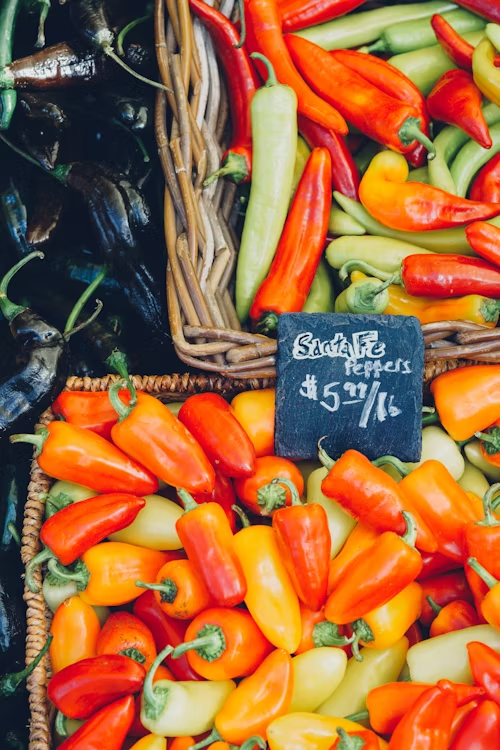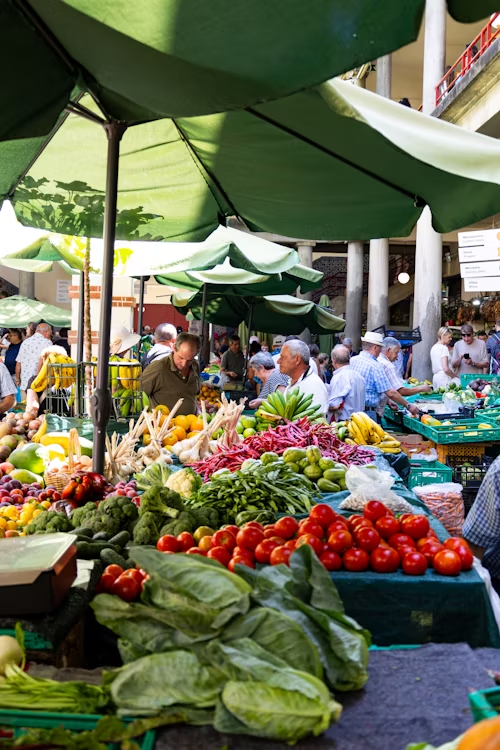Empowering Farmers Market Growth and Local Food Markets

The resurgence of farmers markets across the globe signals a shift towards sustainable consuming and supports local economies. Farmers markets not only offer fresh, local produce directly from farmers to consumers but also act as vital economic engines in small and large communities alike. Understanding the dynamics of farmers market growth, and exploring how individuals and communities can support these local food markets, is essential for anyone interested in the future of sustainable agriculture and local economies.
The Rise of Farmers Markets: A Snapshot of Growth
In recent years, farmers markets have experienced a remarkable growth trajectory. This rise is fueled by a growing consumer interest in purchasing fresh, local foods and a broader understanding of the environmental and economic benefits that these markets bring. According to data from the Farmers Market Coalition, the number of farmers markets in the United States has increased by over 60% in the last decade alone, signaling a significant shift in consumer shopping habits and preferences.
Several factors contribute to this growth:
- Increased consumer awareness: More people are seeking out fresh, organic produce and are willing to support local farmers directly.
- Health and wellness trends: As health-consciousness rises, so does the demand for whole and unprocessed foods, often found at farmers markets.
- Economic incentives: Shopping at farmers markets supports local economies, with money spent at these markets often staying within the community.
- Social experience: Farmers markets often serve as community hubs, offering a place to meet, shop, and engage with neighbors.
Supporting Farmers Markets: Strategies for Individuals and Communities
Supporting local food markets goes beyond just shopping at them. It involves a concerted effort from various stakeholders including consumers, community leaders, and policy makers. Here’s how different groups can contribute:
For Consumers: Enhancing Market Visits and Advocacy
Consumer support is crucial for the sustainability of farmers markets. Here are several ways individuals can help:
- Regular visits: Frequent visits and purchases at local markets make a direct financial impact.
- Word of mouth: Spreading the word about the quality and benefits of market products can attract more visitors.
- Volunteering: Many markets rely on volunteers for setup, breakdown, and other operations.
- Engage on social media: Sharing your market experiences online can increase visibility and draw in a digital audience.
For Local Businesses: Partnerships and Collaborations
Local businesses can play a pivotal role in supporting farmers markets by:
- Partnering for events: Joint events can draw more foot traffic to the market and nearby businesses.
- Offering discounts: Providing discounts for market receipts can encourage more frequent visits to both the market and local businesses.
- Sourcing locally: Restaurants and other food businesses can source ingredients from farmers markets, promoting the market's vendors and offering fresher options to their customers.
For Policy Makers: Creating Favorable Policies
Local government and policymakers have the capacity to significantly influence the success of farmers markets through legislation and public programs. Effective measures include:
- Zoning laws: Adjusting zoning laws to accommodate and encourage the presence of farmers markets.
- Funding and grants: Providing financial support for the establishment and maintenance of markets.
- Educational programs: Implementing programs that educate the public on the importance of supporting local markets and how to incorporate local foods into their daily diet.
Case Studies: Successful Farmers Market Support Initiatives
Across the country, several communities have launched innovative programs to support their local markets. For instance, the Double Up Food Bucks program in Michigan offers SNAP recipients double the value on their purchases at participating farmers markets, effectively increasing access to fresh food while supporting local farmers. Similarly, cities like Portland and Austin have integrated farmers markets into municipal planning projects, ensuring they are a central feature of urban life.
The Future of Farmers Markets
As we look towards the future, the growth of farmers markets appears promising but requires ongoing support and adaptation. Emerging trends include the integration of technology with market operations, such as online sales platforms and digital payment systems, making markets more accessible and efficient. Additionally, there is a growing emphasis on inclusivity, ensuring that all community members have access to the benefits of local food markets.
In conclusion, farmers markets play a crucial role in fostering sustainable economies and promoting healthy communities. By understanding the mechanisms of farmers market growth and implementing strategies to support these vital institutions, communities can ensure that they thrive for generations to come.
Conclusion
Supporting farmers markets is a multifaceted effort that benefits individual health, community well-being, and the local economy. By engaging as consumers, businesses, and policymakers, we can all contribute to the vibrant growth and sustained success of our local food markets. Let us continue to champion these essential community resources as pillars of sustainability and health.



